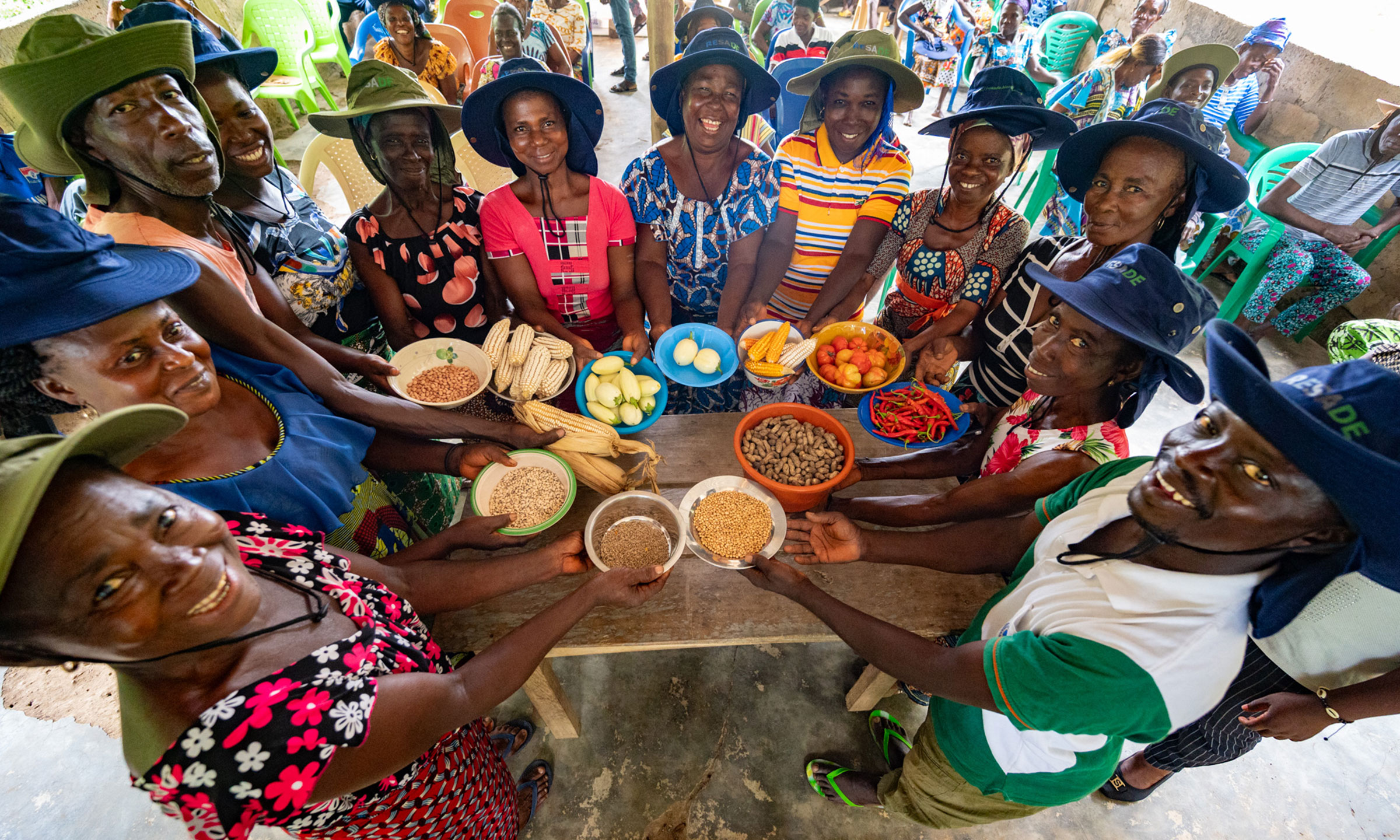RESADE supports community seedbanks in six African nations

Ndey Jobe knows the importance of good seed. The farmer from Gengi Wollof in The Gambia struggles each year to obtain quality seed to sow in her fields. But now her struggles for seed will subside.
Ndey serves as the vice president of the Gengi Wollof Farmer Field School who have now established a community seed bank (CSB). With the assistance of the Gambian National Agricultural Research Institute (NARI), the members of the cooperative have learned to process seed and store them so each year quality seed is available.
“A community seed bank is a local, mainly informal institution, whose core function is to maintain, safeguard and exchange local and farmer-preferred seeds for local use,” said Dr. Rakesh Kumar Singh, the Head of Crop Diversification and Genetics Section of the International Center for Biosaline Agriculture. “They are generally managed by a small group of dedicated women and men farmers, but they usually serve a larger number of farmers at the community level.”
Promoting CSBs via RESADE
Under the five-year project titled “Improving Agricultural Resilience to Salinity through Development and Promotion of Pro-poor Technologies” (RESADE), ICBA is working with national agricultural research systems in Botswana, The Gambia, Liberia, Mozambique, Sierra Leone and Togo to improve agricultural production and productivity and increase incomes of farming communities in salt-affected agricultural areas. One of RESADE’s activities is to establish community-based seed production and processing units.
RESADE is implemented in partnership with the International Fund for Agricultural Development (IFAD) and the Arab Bank for Economic Development in Africa (BADEA).
“Community seed banks differ from national or international seed banks,” said Dr. Kumar. “CSB is based on the principle of conserving local varieties on farm at the community level, that is, in farmers’ fields or home gardens.”
CSBs are less about long-term preservation and more about sharing seed season to season. CSBs store seeds for only a few seasons and regenerate seeds each year through various mechanisms.
CSBs can be critical in preventing the loss of genetic diversity and disappearance of local seed varieties. The local seed that is conserved is adapted to thrive in the soils and climate of the region.
“With CSBs we can help strengthen the local food system and increase food security, starting with seeds,” said Dr. Kumar.
Training community leaders
The RESADE project conducted a five-day hands-on training workshop on CSBs in Dubai which brought together 27 researchers, extension specialists and farmer representatives from the six RESADE countries.
Training sessions were then held in the six countries which focused on seed identification and capacity building for cooperative members in managing a CSB. The members of the cooperatives were taught how to set up a CSB, its usefulness and its management.
Mr. Carmona Samuel, a farmer from Moamba in Mozambique attended the training in Dubai. “We are now extending the knowledge I gained in Dubai to the members of our association and have now presented a community seed bank project to our local government,” Mr. Samuel said. “We hope we can manage our community seed bank in a self-sustainable way which provides all of our members with quality seeds well before the cropping season.”